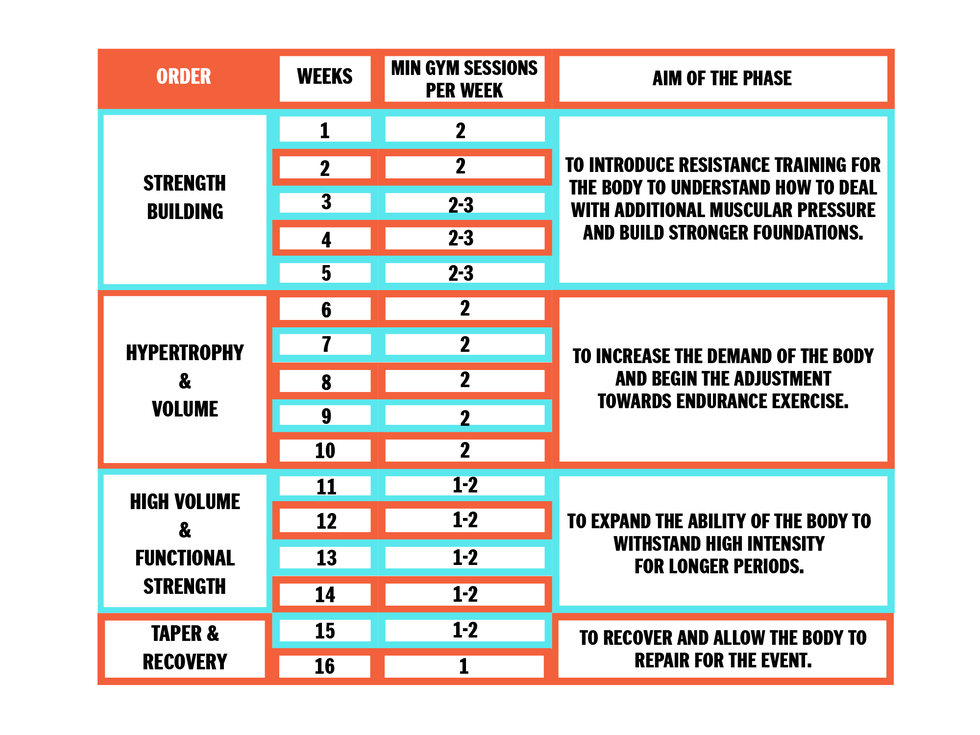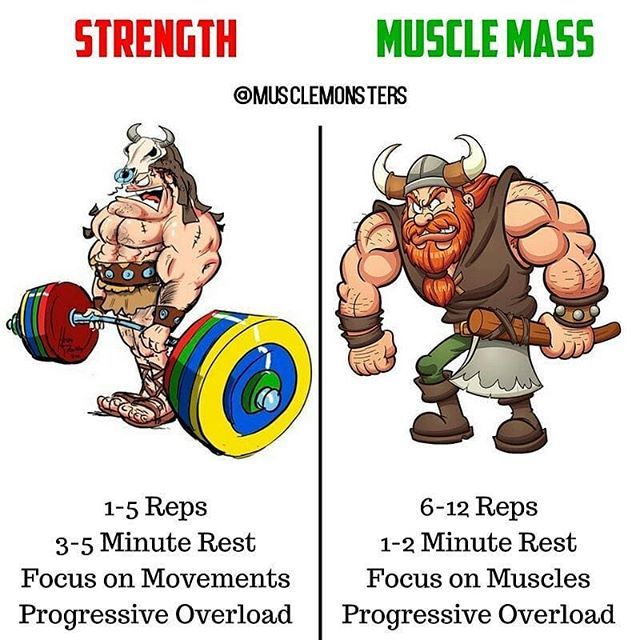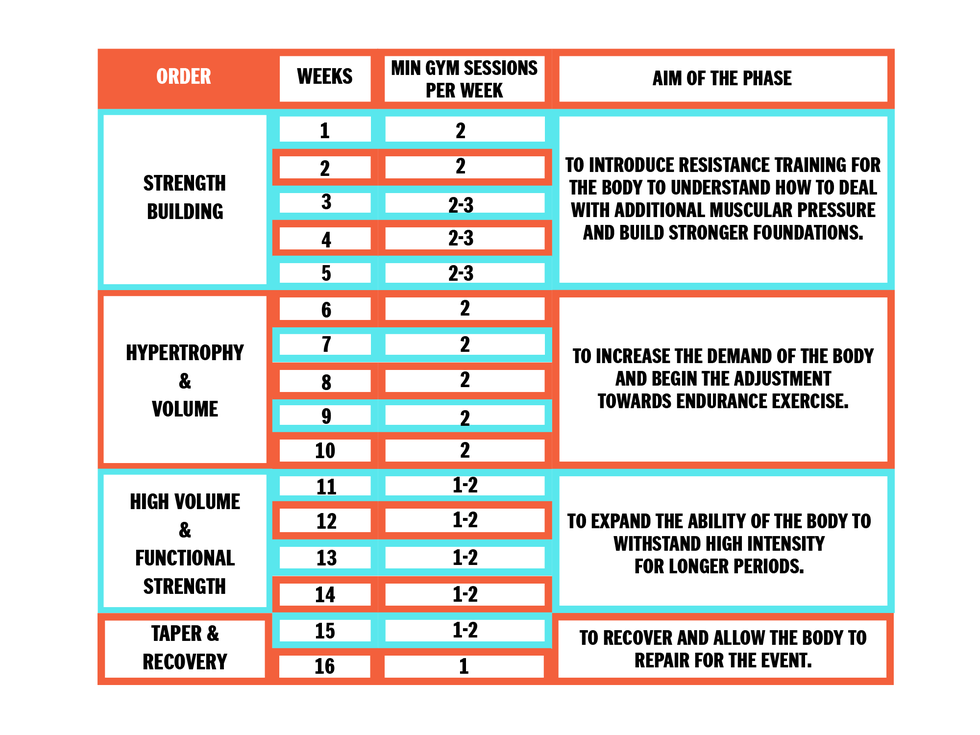Marathon training and strength training are complementary. Strength training enhances endurance and prevents injuries during marathon preparation.
Strength training plays a crucial role in marathon preparation. It helps runners build muscle strength, improve stability, and enhance overall performance. Integrating strength workouts into a marathon training regimen can prevent injuries by addressing muscle imbalances and enhancing joint support.
Focus on exercises that target the core, legs, and upper body. Squats, lunges, and planks are excellent choices. A balanced program should include both running and strength sessions. This combination ensures runners are well-prepared for the physical demands of a marathon. Always remember to listen to your body and allow adequate recovery time. Proper training leads to a successful and injury-free marathon experience.
The Synergy Of Marathon And Strength Training
Strength training helps runners build strong muscles. Strong muscles support the body during long runs. This reduces the risk of injuries. It also improves running efficiency and speed. Runners can run longer without getting tired quickly. Strength training also helps in burning more calories.
Many think strength training makes runners bulky. This is not true. Proper strength training focuses on endurance. Runners also believe strength training will slow them down. In reality, it boosts speed and stamina. Some avoid strength training to save energy for runs. But it actually helps in faster recovery.
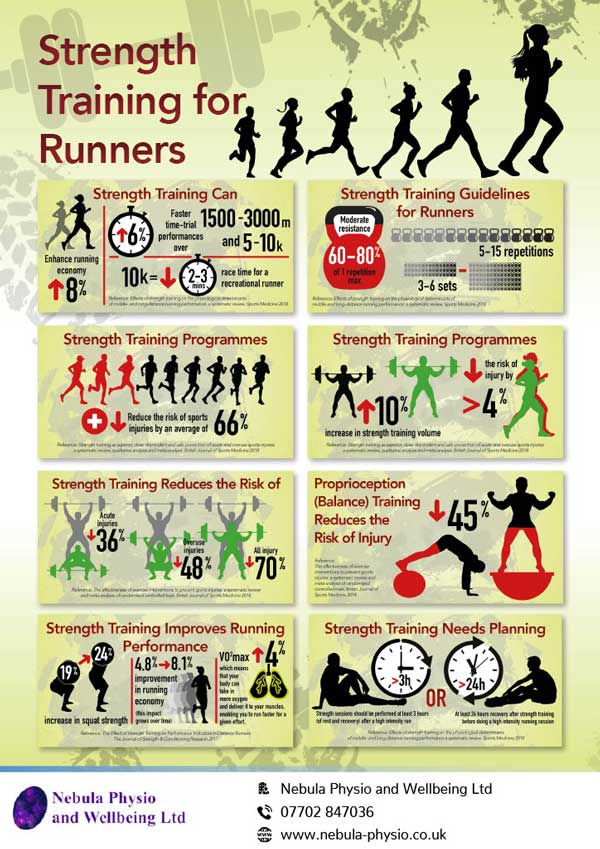
Credit: www.nebula-physio.co.uk
Setting The Pace: Marathon Training Basics
Endurance is key for marathon training. Start with short runs and slowly increase the distance. Include long runs once a week to build stamina. Interval training helps improve speed and endurance. Consistency is crucial in your training schedule.
Good running shoes are essential. Invest in moisture-wicking clothes to stay comfortable. Use a hydration pack for long runs. Energy gels and bars provide quick fuel. Proper nutrition aids recovery and performance. Eat a balanced diet with carbs, proteins, and fats. Stay hydrated by drinking water throughout the day.
Strength Training: The Foundation
Strength training helps runners build muscle and endurance. Squats and lunges are essential for leg strength. Planks improve core stability. Deadlifts enhance overall power. Runners should also focus on calf raises to strengthen lower legs. Push-ups and pull-ups build upper body strength.
Cross-training prevents injury and boosts performance. Cycling and swimming are great options. These activities reduce the risk of overuse injuries. Yoga increases flexibility and balance. Mixing different workouts keeps training exciting and effective.
Creating A Balanced Routine
Cardio helps your heart and lungs. Running and cycling are great cardio workouts. Strength training builds muscles. Lifting weights and bodyweight exercises are good for strength. Both are important for marathon training. You should do cardio and strength workouts on different days. This helps your body recover.
Begin with a light warm-up. Stretching before and after workouts is crucial. Start with short cardio sessions. Gradually increase the time. Include strength exercises that target different muscle groups. This prevents injury and improves performance.
Your body needs time to recover. Rest days are very important. They help muscles heal and grow. Overtraining can lead to injuries. Listen to your body. If you feel tired, take a break.
Sleep is crucial for recovery. Aim for 7-9 hours of sleep each night. Hydration is also key. Drink plenty of water throughout the day. Proper nutrition supports recovery. Eat a balanced diet with proteins, carbs, and fats.
Measuring Progress And Adjusting Goals
Tracking running milestones helps you see improvements. Use a running log to note down distances and times. This shows how much faster and longer you can run. Celebrate small victories, like running an extra mile or shaving off seconds. Keep track of any new personal records.
Evaluating strength gains is important. Keep a strength training journal. Write down weights, reps, and sets for each exercise. Notice when you can lift heavier or do more reps. This shows your muscles are getting stronger. Compare progress every few weeks.
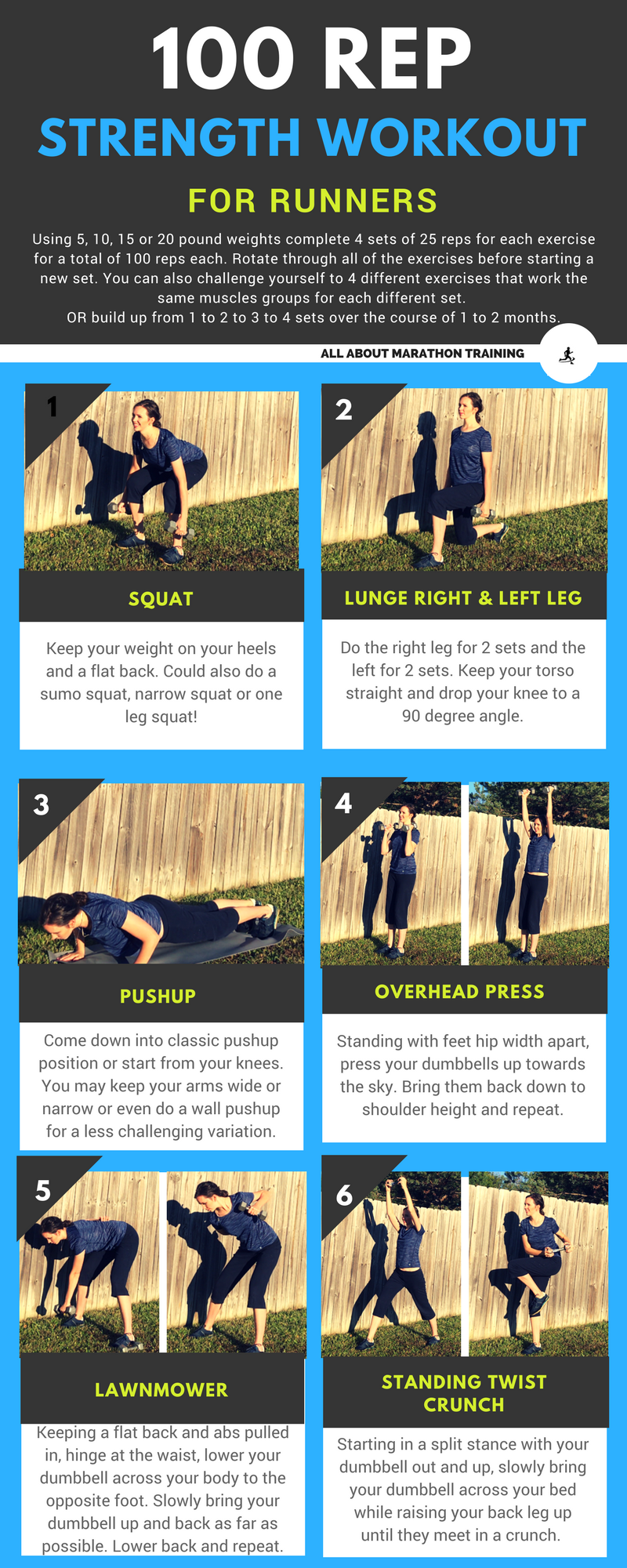
Credit: www.all-about-marathon-training.com
Nutrition For Endurance And Power
Fueling your body with the right nutrients boosts both marathon training and strength training performance. Balanced meals rich in proteins, carbs, and healthy fats enhance endurance and power. Proper hydration and vitamins are essential for muscle recovery and stamina.
Dietary Needs For Marathon Training
A marathon runner needs a lot of energy. Carbohydrates are the main source of fuel. Whole grains, fruits, and vegetables are good choices. Protein helps repair muscles. Lean meats, beans, and nuts are great sources. Hydration is very important. Water and sports drinks keep the body hydrated. Vitamins and minerals are also essential. Fruits and vegetables provide these nutrients. Eating balanced meals helps achieve peak performance.
Fueling For Strength Sessions
Strength training needs a different diet. Protein is key for muscle growth. Eggs, chicken, and tofu are excellent options. Healthy fats also help. Avocados and nuts are good sources. Carbs give energy for lifting weights. Whole grain bread and pasta are good choices. Hydration is crucial here too. Drink plenty of water before and after workouts. A balanced diet helps build strength and power.
Injury Prevention And Management
Marathon training benefits greatly from incorporating strength training, reducing injury risks and enhancing overall performance. Targeted exercises improve muscle endurance, ensuring safer and more effective runs.
Common Running Injuries
Runners often face shin splints, runner’s knee, and plantar fasciitis. These injuries cause pain and discomfort. Shin splints hurt along the shinbone. Runner’s knee causes pain around the kneecap. Plantar fasciitis affects the bottom of the foot. Proper warm-up and cool-down can help. Stretching and using proper footwear also reduce risks.
Strength Training To Reduce Injury Risk
Strength training helps build muscles and support joints. It can improve balance and stability. Exercises like squats, lunges, and planks are effective. These exercises strengthen legs, core, and glutes. Twice a week strength training is recommended. It helps in reducing injury risk. Strong muscles can absorb shock better. They protect the body from stress.
Success Stories: Integrating Strength In Marathon Training
Jane ran her first marathon last year. She added strength training to her routine. Jane’s finish time improved by 20 minutes. She felt stronger and less tired.
Tom used to struggle with knee pain. He started lifting weights twice a week. Tom finished his marathon without pain. His recovery was much faster.
Lisa combined running and strength exercises. She set a new personal record. Her energy levels were high throughout the race.
Mark never thought he could run a marathon. He joined a strength training program. Mark completed the race in under four hours. His story inspires many new runners.
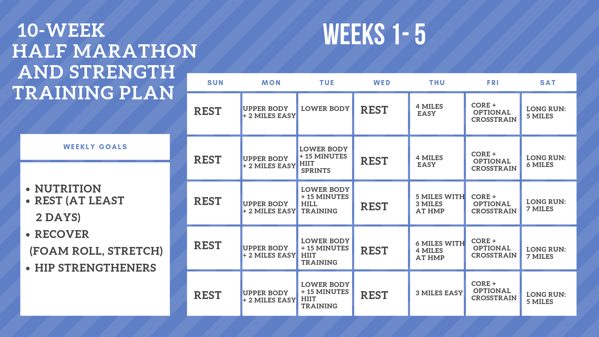
Credit: fitnessista.com
Frequently Asked Questions
Can I Strength Train And Train For A Marathon?
Yes, you can strength train while training for a marathon. Balance your workouts to avoid overtraining.
Should I Combine Running And Strength Training?
Yes, combining running and strength training boosts overall fitness. It improves endurance, builds muscle, and reduces injury risk.
When To Stop Strength Training Before A Marathon?
Stop strength training 7-10 days before a marathon. Focus on tapering and recovery to optimize performance.
Can I Bodybuild And Train For A Marathon?
Yes, you can bodybuild and train for a marathon. Balance your workouts, prioritize recovery, and manage your nutrition.
What Is Marathon Training?
Marathon training involves long-distance running workouts to prepare for a 26. 2-mile race.
Why Combine Strength Training With Marathon Training?
Combining strength training boosts endurance, reduces injury risk, and improves overall running performance.
How Often Should I Do Strength Training?
Aim for strength training 2-3 times per week for optimal results.
What Are Key Strength Exercises For Runners?
Key exercises include squats, lunges, deadlifts, and core workouts.
Can Strength Training Improve Running Speed?
Yes, strength training increases muscle power, leading to improved running speed and efficiency.
Should I Lift Heavy Weights Or Do Bodyweight Exercises?
Both heavy weights and bodyweight exercises are beneficial; choose based on your fitness level and goals.
Conclusion
Combining marathon training with strength training boosts performance and reduces injury risk. Balance both for optimal results. Listen to your body and adjust as needed. Consistency and dedication are key to achieving your marathon goals. Embrace the journey and celebrate progress along the way.
Happy training!

